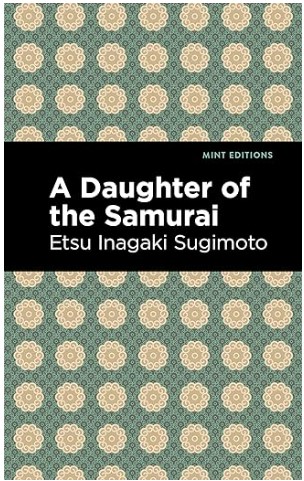This modest little volume sat on my bookshelf for nearly three years after I purchased it on a book-buying expedition in Jimbocho. It was the only thing I could afford (Meik tends to look for obscure, and expensive, books on classical martial arts), and I didn’t want to feel left out, so I picked it up. But until a few months ago, I never found the time to read it. You’ve perhaps seen copies floating around at bookstores as well, been intrigued enough by the title to look at it, but saved your money for more obviously relevant purchases.
Make no mistake–this is an elegantly written and subtly revealing look at the daily life of the samurai class in its final days of existence. The author, born Etsu Inagaki, was the daughter of the karo or first counselor of the lord of Nagaoka Domain in Echigo Province (modern-day Niigata) during the final days of the conflict that led to the Meiji Restoration. Etsu grew up in the shadow of her clan’s defeat, but was raised in a strictly samurai tradition. What makes her unique is that after this thoroughly proper and old-fashioned upbringing, she was sent to be the bride of a Japanese man who lived in the United States. This gives her a special insight into explaining the traditions of her native culture to outsiders.
This memoir, first published in 1926, was written in English (surely with some help, as the prose is a real pleasure to read), and to my knowledge has not been translated into Japanese. There are so many delightfully and informatively recounted episodes that it is nearly impossible to isolate one or two as examples. Etsu tells of the annual “Castle Sinking Celebration,” which commemorated the destruction of her father’s castle at Nagaoka in vivid detail, conjuring up the parade of local folk dressed as warriors parading to the site where the castle had stood. Her foray into the family storehouse, the objects kept therein and the memories they inspire, reveal an astonishing amount about the heart of the samurai way of life.
So don’t let the “daughter” part fool you–Etsu was every bit a traditional Japanese warrior, and her tale will enchant and enlighten anyone with an interest in Japan and its culture.

